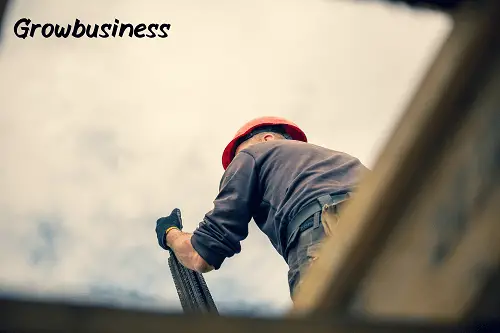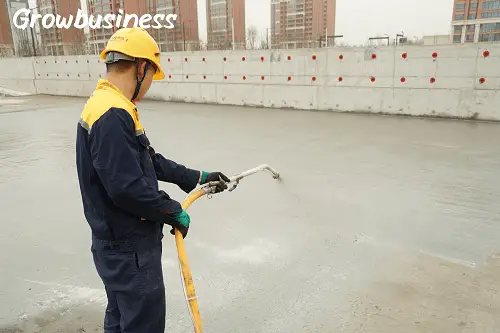Waterproofing Business: A complete guide on how to start
Waterproofing is one of the construction maintenance businesses that are becoming a necessity nowadays, used to offer protection from water damage coming from leakage, flooding, or moisture buildup in buildings. The demand for waterproof services is gradually increasing since everyone is coming to realize their importance in preventing water-based problems that may lead to costly repair and damage at the properties. If you’re considering starting a waterproofing business, this guide will provide an overview of the steps involved, key considerations, and answers to common questions in the industry.

Step 1: Research the Market and Understand the Industry
Extensive market research before one starts a business. Applications of the waterproofing industry range from residential to commercial, and to the industrial sectors. According to your location, there could be a greater demand in areas such as basements, foundations, roofs, swimming pools, etc.
Important things to consider at the time of research are as follows:
What is the demand for your waterproofing service in your area?
- Who are your competitors?
- What are the most popular pricing models?
- What materials and techniques are most commonly used in your region for waterproofing?
Knowing this will give you an idea of whether your business is viable or not, and what niche you will be occupying in the market.
Step 2: Plan Your Business
Any startup business requires a well-structured business plan. A business plan serves as a roadmap to success for your business. It includes:
- Executive Summary: Outline the services you will provide and your vision for the business.
- Market Analysis: Discuss market trends, competitors, and customer demographics.
- Marketing Strategy: Describe how you will get customers (online advertising, word-of-mouth, partnerships with construction companies, etc.).
- Financial Plan: Outline startup costs, projected revenues, expenses, and break-even analysis.
- Operations Plan: Describe daily operations, including team structure, equipment, and supply chains.
A good business plan will put you on the right path concerning your decisions and give you guidance in seeking financing from investors or lenders if needed.
Step 3: Licenses and Permits
Waterproofing falls under general categories of construction-related work. Get all licenses and permits to run legally within your locality. The state also has a difference for licensing; some common permits, however, include:
- Contractor’s License: This is necessary for large-scale or commercial projects.
- Business License: This is a general license to operate your business within your city or state.
- Insurance: Liability and worker’s compensation insurance are important to protect your business and employees.
Refer at all times to your local government or small business administration to get the requirements for your local area.
Step 4: Equip and Materialize

In the waterproofing business, several tools, and materials are necessary, which would constitute a great investment for you. Some of the common ones include;
- Spray Equipment: A device used to spray on surfaces with waterproof coatings or sealants.
- Membranes: Applied on foundation and roofing.
- Waterproofing Chemicals: Coatings, sealants, and additives that repel water.
- Safety Gear: PPE, gloves, goggles, and respirators, among others
At the very beginning, leasing some of the equipment that you will require helps you not to spend as much money when starting. The longer you let the business run, the more space you can fill
Step 5: Staff and Network
If you are expanding your business, then it is very crucial to start building up a reliable and skilled team. Waterproofing is an enormous job that requires construction, chemistry, and problem-solving capabilities. Experienced employees or trained employees are essential to maintain top service quality.
Other than developing personal and professional relationships, an essential relationship that can be made with your potential clients would involve networking in the construction and real estate industries. This will take the form of attending trade shows, joining local business associations, and even considering partnering with general contractors, property managers, and even real estate agents.
Marketing Your Waterproofing Business:
This will be a great marketing strategy that differentiates them from others within the same competitive market. Make a professional website showing the services offered, previous projects undertaken, and testimonials from clients. Use social media, especially on Instagram and Facebook, to share before-and-after photos of your waterproofing services, client reviews, and helpful tips.
Partner with a local home improvement or construction expo to offer free consultations as well as to obtain new customers.
Frequently Asked Questions About Starting a Waterproofing Business:
1. How much does it cost to start a waterproofing business?
Depending upon the location model and scope of services you have decided to provide, the initial cost of starting such a business can be quite varied. Generally, it would range from $10,000 to $50,000, given equipment, materials, licenses, insurance, and marketing. But these costs would grow as you grow accordingly.
2. What do you think are the key skills required for waterproofing?
No doubt that awareness of construction techniques, materials, and methods of waterproofing must exist. Business management skills encompassed by marketing, customer care,e, and financial planning are the necessary elements that will make the company operate for a long period.
Experience in the building construction industry, preferably an orientation to waterproofing and related fields is more than welcome.
3. Is waterproofing a business opportunity that can be profitable?
Waterproofing can be very lucrative, especially in places of heavy rainfall, high humidity, or flooding. If there is a great pricing model, a loyal client base,anda d well-running operation, then they will surely churn out hefty revenues. Industry profit margins are generally 10% to 30% on scale.
4. What are some of the common techniques used in waterproofing?
Liquid-applied membranes: Applied to the surface to totally coat it with a waterproof layer.
Cementitious waterproofing: Most often applied in basements and foundations.
Polyurethane coatings: Applied over the roofs and terraces for waterproofing.
Tanking: T his application where the wall is totally closed by a layer of waterproof. All of them can be used depending on the surface condition and environment.
5. How do I ensure quality and customer satisfaction in my waterproofing?
TQualityassurance is important because the service is long-term in nature. To ensure that customers are satisfied, you should:
- Use quality materials.
- Hire qualified workers and give adequate training.
- Communicate with clients about the scope of work and timelines.
- By focusing on quality and customer relations, you will have a good reputation and referrals to your advantage.
Conclusion:

Start an interesting waterproofing with all the growth requirements for the ever-increasing needs of the residential and commercial markets on water protection. Remember, reputation is the key as you grow your business. Quality work and a good relationship with customers are the best ways to differentiate yourself in this competitive market of waterproofing.
